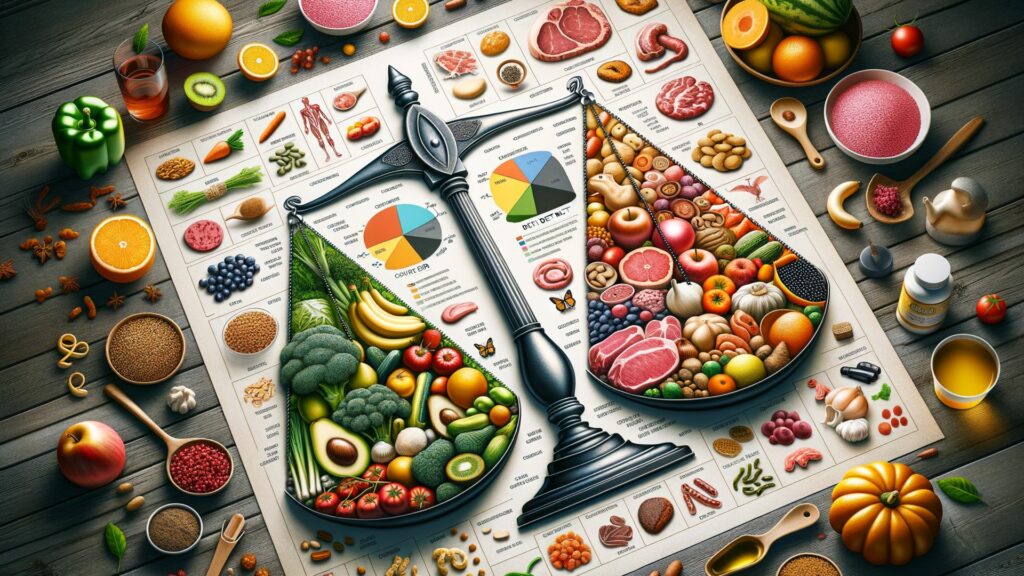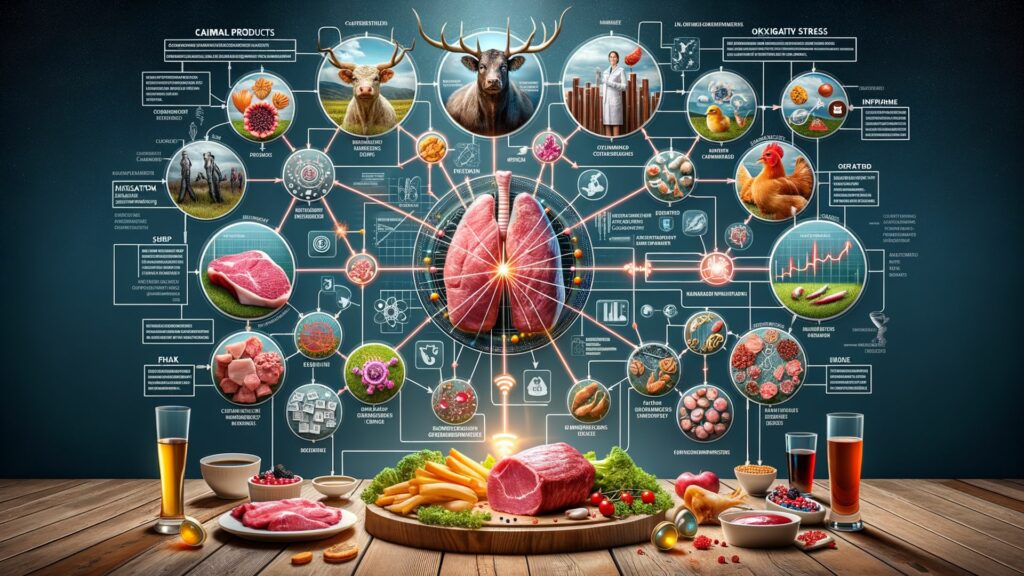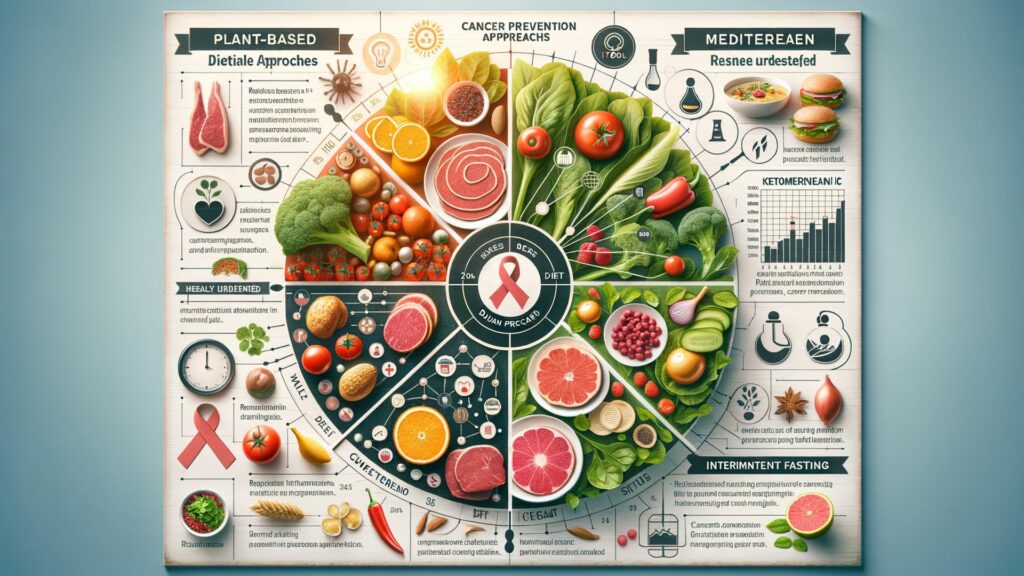Can the Carnivore Diet Reduce Cancer Risk?
When considering the relationship between diet and cancer, it is crucial to delve into the various aspects that pertain to how dietary choices impact cancer development, prevention, and the behavior of cancer cells within the body.
What is the Relationship Between Diet and Cancer?
Role of Diet in Cancer Development: Studies have shown a clear link between diet and the development of certain types of cancers. The consumption of processed meats and high-fat foods has been associated with increased risks of developing colorectal and prostate cancers.
Cancer Prevention through Dietary Choices: On the contrary, adopting a balanced diet rich in fruits, vegetables, and whole grains has been shown to lower the risk of cancer. These foods are abundant in nutrients that have protective effects against cancer cells.
Impact of Nutrients on Cancer Cells: Certain nutrients found in plant-based foods have been found to hinder the growth and spread of cancer cells. For instance, phytochemicals present in fruits and vegetables possess antioxidant properties that help fight cancer.

How Does the Carnivore Diet Influence Cancer Risk?
Carnivore Diet vs. Cancer Development: The carnivore diet, characterized by the consumption of animal products exclusively, raises concerns regarding its potential impact on cancer development. The high intake of red meats and processed meats in this diet has been linked to an increased risk of certain types of cancer.
Effect of High-Fat Consumption on Cancer Cells: High-fat diets, such as the carnivore diet, may promote the growth of cancer cells due to the abundance of fatty acids that provide ample energy to the cancerous cells. This scenario can exacerbate cancer progression in individuals following such dietary patterns.
Ketosis and Its Role in Cancer Prevention: The ketogenic aspect of the carnivore diet, leading to ketosis, has sparked debates about its potential benefits in cancer prevention. Some studies suggest that the metabolic state of ketosis may have protective effects against certain types of cancer by restricting the fuel supply to cancer cells.

Can the Carnivore Diet Benefit Cancer Treatment?
Exploring the Link Between Carnivore Diet and Cancer Treatment: Research is ongoing to determine whether the inclusion of the carnivore diet in cancer treatment regimens can yield positive outcomes for patients. However, caution is warranted due to the potentially adverse effects of high-fat and animal-product-heavy diets on cancer patients.
Potential of the Carnivore Diet in Tumor Regression: Some proponents of the carnivore diet believe that its exclusion of carbohydrates can potentially starve cancer cells, leading to tumor regression. Nevertheless, further scientific validation is required to establish the efficacy of this approach in cancer management.
Enhancing Immune Response through Diet in Cancer Therapy: The role of diet in bolstering immune responses in cancer patients undergoing treatment cannot be undermined. Consuming a diet rich in essential nutrients can support immune function, aiding in the body’s fight against cancer cells.
What Are the Risks and Controversies Associated with the Carnivore Diet?
Red Meat Consumption and Cancer Risk: The excessive intake of red meat, a staple in the carnivore diet, has been strongly linked to an elevated risk of developing colorectal cancer. Processed meats, in particular, have been classified as carcinogenic by the World Health Organization.
Debates Surrounding High-Fat Diets and Cancer: The debate regarding the association between high-fat diets, like the carnivore diet, and cancer risk continues among researchers and healthcare professionals. Some argue that high-fat intake can fuel cancer cell proliferation, while others explore the potential benefits of fat metabolism in cancer prevention.
Carbohydrates vs. Fatty Acids in Cancer Development: The contrasting roles of carbohydrates and fatty acids in cancer development add complexity to the discussion about diet and cancer. Balancing the intake of these macronutrients is essential in managing cancer risks effectively.
Exploring Other Dietary Approaches for Cancer Prevention and Treatment
Comparing Carnivore Diet with Ketogenic Diet for Cancer Management: While the carnivore diet and the ketogenic diet share similarities in terms of restricting carbohydrates, their overall compositions and impacts on cancer management may differ. Research comparing these two dietary approaches can shed light on their distinct roles in cancer prevention.
Understanding the Impact of Different Diets on Colorectal Cancer: Colorectal cancer, a prevalent form of cancer, is influenced by dietary choices. Analyzing how various diets, including the carnivore diet, affect the development and progression of colorectal cancer can provide valuable insights for patients and healthcare providers.
Role of Plant-based Diets in Cancer Prevention: Plant-based diets, abundant in fruits, vegetables, and whole grains, have been recognized for their potential in preventing cancer. The phytonutrients and antioxidants present in plant foods play a crucial role in fighting cancer and promoting overall human health.

Carnivore Diet And Cancer Prevention Frequently Asked Questions:
Q: What is the connection between diet and cancer?
A: Diet plays a significant role in cancer risk and progression. Certain diets, like the ketogenic diet and high-fat diets, have been studied in relation to cancer prevention and treatment.
Q: Can the carnivore diet reduce the risk of cancer?
A: The carnivore diet, characterized by high consumption of red meat and meat products, is suggested by some to potentially reduce the risk of cancer due to its low-carbohydrate and high-fat nature.
Q: Is there a link between prostate cancer and diet?
A: Studies have shown that a diet high in red meat and dairy products may increase the risk of developing prostate cancer.
Q: How does a high-fat diet impact cancer risk?
A: High-fat diets can influence cancer risk, as some research suggests that high-fat intake may promote cancer cell growth and development.
Q: Does the carnivore diet have any impact on colorectal cancer development?
A: Some studies have explored the relationship between the carnivore diet, high in red meat consumption, and the development of colorectal cancer.
Q: What is ketosis and how does it relate to cancer?
A: Ketosis is a metabolic state where the body uses ketones for energy instead of glucose. Some researchers are investigating the effects of ketosis on cancer cells compared to normal cells.
Q: Can a high-fat diet help reverse cancer progression?
A: There is ongoing research on the potential of high-fat diets, such as the ketogenic diet, to potentially reverse or slow down cancer progression in patients with cancer.
Q: What impact does meat consumption have on cancer risk?
A: Consumption of red meat, especially when cooked at high temperatures, has been linked to an increased risk of certain types of cancer, such as colorectal cancer.




